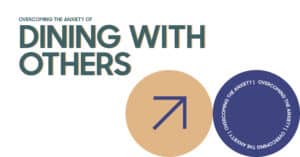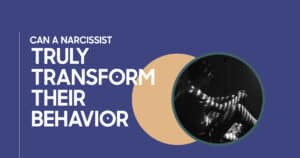DBT for Bipolar Disorder: A Therapy-Informed Approach to Mood Stability
Understanding Bipolar Disorder
Bipolar disorder is a psychiatric disorder marked by extreme mood swings. These include manic episodes, depressive episodes, and mixed episodes. These shifts cause serious functional impairment and impact psychosocial functioning in daily life.
Symptoms and Challenges
Symptoms include intense emotions, rapid shifts between elevated and low moods, and impulsive behavior. Patients often experience both negative emotions and heightened emotional stimuli. Core symptoms can mimic those seen in borderline personality disorder, increasing the risk of misdiagnosis.
Conventional Treatments and Limitations
Conventional bipolar disorder treatment typically involves mood stabilizers, antipsychotic medication, and antidepressants. While these manage manic symptoms and depressive symptoms, they don’t fully address emotional dysregulation. Many patients continue to experience poor emotion regulation and low quality of life despite pharmacological treatment.
What is Dialectical Behavior Therapy (DBT)?
Origins and Development
Dialectical behavior therapy was created by Marsha Linehan to treat borderline personality disorder. It blends cognitive behavior therapy, behavioral strategies, and mindfulness-based interventions. First published by Guilford Press, DBT gained approval from the American Psychiatric Association and is now used for many mental disorders.
Core Concepts and Principles
DBT helps patients learn emotion regulation, distress tolerance, mindfulness, and interpersonal effectiveness skills. It teaches patients to manage emotional urges and reduce impulsive urges through structured behavioral therapy. This improves daily functioning and supports treatment for mood disorders like bipolar depression.
Differences Between DBT and Other Therapies
Unlike standard cognitive therapies, DBT balances acceptance with change. It targets emotional dysregulation directly and builds practical skills. This therapy-informed approach is especially helpful for mood instability in bipolar spectrum disorder and borderline personality disorder patients.
How DBT Helps with Bipolar Disorder
Mood Regulation Techniques
DBT offers emotion regulation techniques that stabilize mood and reduce emotional extremes. It supports control over emotional responses during both manic and depressive episodes. These methods reduce the recurrence of extreme mood swings and support bipolar disorder treatment plans.
Improving Emotional Dysregulation
Emotional dysregulation is a key symptom of bipolar disorder. DBT addresses this through structured behavioral treatment. Techniques used in DBT help regulate emotional stimuli and improve long-term psychosocial outcomes.
Enhancing Problem-Solving Skills
DBT teaches patients to manage daily stress and impulsive behavior. It enhances executive functioning during episodes of mania or depressive states. By improving cognitive control, DBT reduces the severity of bipolar symptoms and increases patient autonomy.
Interpersonal Effectiveness Strategies
Bipolar disorder often disrupts relationships due to unpredictable emotional responses. DBT strengthens interpersonal skills, promoting emotional clarity and healthy communication. This increases social rhythm stability and reduces interpersonal conflict.
The Four Modules of DBT
Mindfulness
Mindfulness increases awareness of emotional triggers and reduces automatic reactions. It helps patients stay present and reduce emotional reactivity during episodes of mania or depression. Mindfulness supports better emotional control and improves behavioral outcomes in bipolar patients.
Distress Tolerance
Distress tolerance skills are critical for surviving emotional crises. These skills provide alternatives to self-harm, risky behavior, or substance misuse. Increases in distress tolerance have been linked with improved outcomes in both pilot studies and 1-year open-trial research.
Emotional Regulation
Emotion regulation is central to controlling affective disorder symptoms. Patients learn to recognize emotional urges and respond with intention, not impulsivity. Clinical trials and follow-up period data show reductions in measures of depression and anxiety disorders through these skills.
Interpersonal Effectiveness
Interpersonal effectiveness helps patients maintain stable relationships, even during mood shifts. It teaches assertiveness, boundary setting, and emotional validation. These skills are key in psychosocial treatment and social rhythm therapy strategies.
Integrating DBT with Other Treatments
DBT and Medication
Medication remains a foundation in treating bipolar disorder. DBT supplements this by reducing emotional dysregulation and increasing patient insight. When combined, this dual approach supports better outcomes in mental health treatment.
Combining DBT with Cognitive Behavioral Therapy (CBT)
DBT and CBT share a focus on behavior and thought patterns but differ in delivery. CBT targets cognitive distortions, while DBT emphasizes emotion regulation and distress tolerance. Combining both therapies has shown improved outcomes in pilot randomized studies.
DBT and Interpersonal and Social Rhythm Therapy (IPSRT)
IPSRT focuses on stabilizing daily rhythms and routines. DBT enhances this by teaching emotion regulation and distress tolerance skills. Together, they help reduce mixed episodes and improve mood predictability in bipolar patients.
Benefits of DBT for Bipolar Disorder Patients
Increased Self-Confidence
DBT empowers patients with skills for emotion regulation and behavioral control. This increases self-confidence and reduces the fear of emotional breakdowns. Many patients report greater control over emotional urges and bipolar symptoms after DBT.
Greater Peace of Mind
Managing intense emotions leads to less internal chaos. DBT promotes a more balanced mental state during episodes of mania and depressive symptoms. Emotional stability contributes to a higher quality of life and better psychiatric disorder outcomes.
Improved Patient Satisfaction
DBT is associated with high patient satisfaction in psychological treatments. Previous studies and a systematic review and meta-analysis support DBT’s impact on depressive episodes, impulsive behavior, and functional improvement. Positive emotions increase as patients gain mastery of their emotional responses.
Better Self-Management and Coping Skills
DBT improves emotional resilience and coping strategies. Patients learn how to navigate mood swings with mindfulness and behavioral therapy. This reduces the likelihood of hospitalization and improves primary outcomes in clinical settings.
Implementing DBT in Therapy
Individual Therapy Sessions
Individual therapy provides customized support and skill application. Sessions target primary outcome measures like emotion dysregulation and negative emotions. This format is highly effective for both adolescent therapy and adult bipolar disorder treatment.
Group Skills Training
Group therapy teaches dialectical behavior therapy skills in a peer setting. It supports interpersonal growth and reinforces learned behaviors. DBT group work is used in therapy for mood instability and is highly valued in mental health care settings.
Telephone Coaching
Phone coaching supports skill use in real-life situations. It helps patients apply crisis survival skills during emotional triggers or manic symptoms. This bridge between sessions improves long-term effectiveness.
Therapist Consultation Teams
DBT therapists work in consultation teams to ensure high-quality care. These teams review patient progress, reduce burnout, and maintain treatment fidelity. This structure is key to successful DBT delivery for bipolar patients.
Success Stories and Case Studies
Real-World Applications
Case studies from bipolar disorder treatment programs show reduced psychiatric symptoms, improved emotional regulation, and better daily functioning. A 2-year randomized trial showed significant improvements in primary outcomes. DBT-based interventions have also shown promise in therapy for adolescents with mood disorders.
Patient Testimonials
Patients share stories of transformation through DBT. Many report fewer depressive episodes, fewer episodes of mania, and better distress tolerance. DBT has helped improve emotional control and psychosocial measures even in borderline personality disorder patients with co-occurring bipolar symptoms.
Challenges and Considerations
Potential Obstacles in Therapy
DBT requires commitment and consistency, which can be hard during mood shifts. Patients in depressive states may struggle to attend sessions or apply skills. Mental health professionals must be flexible and use evidence from previous studies to adapt their approach.
Adapting DBT for Individual Needs
Not all patients respond to standard DBT formats. Age, culture, comorbid mental health conditions, and cognitive ability can affect treatment. Customized delivery ensures patients receive effective psychological interventions suited to their unique challenges.
Future Directions in DBT for Bipolar Disorder
Ongoing Research and Innovations
Ongoing clinical trials, pilot study reports, and a critical review of DBT show strong outcomes for bipolar patients. Future studies aim to clarify the significance level of improvements and examine definitive trial data. The Longitudinal Interval Follow-up Evaluation continues to gather insight into long-term effects.
Expanding Access to DBT
More mental health professionals are being trained in DBT to meet the growing demand. Online programs and telehealth services are increasing accessibility. Treat Mental Health Tennessee remains committed to expanding evidence-based care, including DBT for bipolar disorder and related mental health conditions.
Conclusion
Dialectical behavior therapy offers a powerful treatment for managing the intense emotions, mood instability, and impulsive behavior seen in bipolar disorder. With core modules that target emotion regulation, distress tolerance, and interpersonal effectiveness, DBT is a valuable tool for both short- and long-term improvement.
At Treat Mental Health Tennessee, we use DBT to support individuals with bipolar disorder and related psychiatric conditions. Whether you’re experiencing manic episodes, depressive symptoms, or difficulty with emotional regulation, our therapy-informed approach can help restore control and improve your quality of life.
Contact Treat Mental Health Tennessee today to learn how our DBT-based programs can support your journey to stability and recovery.
FAQ's
Coverage varies by provider. Many insurance plans do cover DBT for bipolar disorder under behavioral health benefits.
Yes. Many therapists offer online DBT sessions, making it accessible for people with bipolar symptoms or mobility challenges.
Some report improvement within a few weeks, but most see lasting change after 3–6 months of consistent DBT practice.
Yes. DBT was designed to reduce life-threatening behaviors and can significantly help manage suicidal ideation in bipolar patients.









